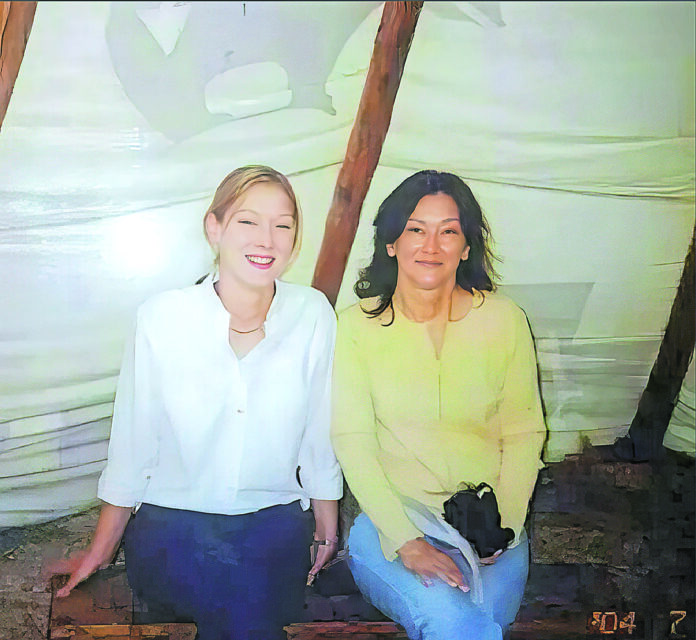On average, 130 American lose their lives by suicide every day. More than five lives per hour. One life lost every 11 minutes. On Dec. 27, 2012, my mother was one of those lives. Seven years later I tried my best to be one of those lives.
For decades I was unaware of my depression. I assumed the general malaise and inferiority that clouded my brain was felt by everyone to the same extreme I felt. I thought that cutting myself with razors just to feel anything during bouts of detachment and profound numbness as a teenager was normal. I thought my poor, self-sabotaging judgment to choose a vagabond life filled with alcohol and drugs over a free ride to college was a sound choice.
I can’t remember when I didn’t toy with the thought of suicide. Even at a young age, life felt needlessly difficult and heavy. Getting out of bed and facing a regular day was overwhelming. The art of putting on a happy face while participating in life was mastered early although my brain repeated its mantra of “I don’t want to be here. They’re judging you. It’s all a sham” constantly.
In my mid-20s, a doctor suggested that I return to therapy and begin taking an antidepressant. I took his advice and felt nominally better-ish. Yet, I couldn’t shake the foundational misconception that “it” was all wrong. Not the medication or the cognitive behavioral therapy but me, the world and life. I was an inherently bad human being who had no right to be in this world according to my belief system.
After severing my relationship with alcohol and drugs through rigorous work in a 12-step program, I was disheartened that I was still left with the dark cloud over my head, casting shadows on a productive life steeped in being of service to others. I gave more, did more and tried to be more, stretching and pulling myself to feel like I was enough.
I would often gaze over the edge of mountain passes as I drove and romanticize taking off my seatbelt and driving over the edge. I knew how much medicine was in my home, ensuring there was always enough to fall asleep and never wake. Instead of a life insurance policy, I maintained my death policy. It was always there, readily available whenever I finally had enough.
In December 2012, the phone call came. Because of my mom’s honesty with me about her mental health struggles and suicidality, I had long before accepted that eventually depression would win the battle she fought for decades. Yet, I was unprepared. My beautiful, smart as a whip and deeply flawed mother, my No. 1 protector and defender, was gone. Her mental illness won. She was only 55.
Her death opened the door for my mind to delve deeper into the thought of suicide. I no longer had to worry about the devastation it would cause her. Plus, I missed my mom and wanted nothing more than to be with her again. Days, weeks and months found me curled up in bed saying over and over again, “I just want my mama” like a toddler left home with a babysitter.
Fast forward to February 2019 when I was a college graduate, working in a field that I loved, a homeowner and married to an all-around great guy. I was tracking household medications again and those steep drops off the interstate were calling to me again. I knew I was losing my battle with mental illness and my days or hours were numbered. I was tired of fighting my own mind to stay alive. I was tired.
I made a phone call to my regional director from outside my workplace and hysterically told her that I needed help. She directed me to the closest emergency room where my husband met me. My denial had me doubting that I would qualify for treatment. I was wrong. It seemed that suicidal ideation with multiple plans and means was the exact qualification for inpatient treatment for mental health.
I can’t say I was happy to be hospitalized, but I was so relieved to be safe and to finally be honest about the extent of my struggles without fear of being judged. I was gifted a reprieve from working on anything but my mental health, coping strategies and establishing authentic connections with other patients, one of whom is still a dear friend to this day. (Hey Julie! I love you!)
In my two weeks of wearing grippy socks and sleeping on a 2-inch foam mattress, I wasn’t taught any skills that I didn’t already know. That’s the weird thing. Logically, I knew everything they taught me. Hell, I had taught the same skills to others in my career. Yet, I required other human beings to make it click in my head. I couldn’t fix my brain with my self-knowledge. I required outside help.
Whether my mental illness is determined by nature or nurture, a genetic predisposition or my environment, it doesn’t matter. Yes, many of my immediate family members and ancestors have struggled with mental illness, and yes, I was raised in a home with mental illness that resulted in profound physical, mental and emotional abuse. I can rationalize it, but I can’t control my disease on my own. My mental illness can’t be cured, but it can be managed and treated like many other diseases.
It would be swell to report that life is all rainbows and unicorns today. That’s not my reality. I am still tasked with staying on top of my mental illness. After research, I found a therapist who works well with me, and we have delved into EMDR therapy to address my PTSD. I still have mental health diagnoses and choose to take medication to offset the symptoms. Just like any other chronic illness, my depression requires lifelong treatment to be managed. Today, I am grateful to have that opportunity.
If you are struggling, please call 988 or text TALK to 741741. You are not alone.




























